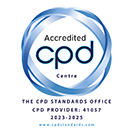31 January 2019
Charles Tennant Memorial Lecture 2019
Organised by::
SCI's Scotland Group
Glasgow, UK
Registration Closed
This event is no longer available for registration.
Synopsis
Industrial Biotechnology is not a particularly new enterprise. For centuries humankind has developed and diversified ways to employ micro-organisms to manufacture products such as fermented foods and drinks. Microbial enzymes were subsequently found to be valuable as industrial biocatalysts to prepare a wide range of commercial products, including chemicals, pharmaceuticals and consumer goods. Means to accelerate the mutation and adaptation of microbes for industrial purposes have proven extremely useful to improve the productivity and economics of applied bioprocessing. But it has been the increasing ability to systematically engineer the genetics and biochemistry of biological systems, particularly microbes, that has provided us with the ambition to establish Industrial Biotechnology as a viable approach to meet a vast range of growing human needs, from competitive, sustainable manufacturing to combating anti-microbial resistance and helping to meet future food and energy requirements.
Since the 1970s this "Genetic Engineering" has progressed to "Pathway Engineering" to "Synthetic Biology", possibly now to "Engineering Biology" and maybe in future back to "Genetic Engineering". Prediction is difficult, not just in how terminology will evolve, but in exactly how to most effectively apply Industrial Biotechnology to maximum benefit. Those funding the development of new bioprocesses always need to know "how long, how costly and how risky". These are not easy questions to answer accurately in an environment requiring near constant innovation and troubleshooting to deliver success. A small biotech company must be ready to adapt to emerging (or disappearing) opportunities in a frequently volatile and evolving marketplace, influenced by factors outwith its control, such as the price of crude oil or the board decisions of a multinational end-user. This is especially so if the company is not initially underpinned by specific, exploitable intellectual property to afford some breathing space. Ingenza has embraced a culture of adaptability throughout its life, investing heavily in diverse and complementary methodologies (both old and new), but more importantly in diverse and complementary people, who integrate scientific and commercial disciplines, pressure test ideas and support a passion for innovation.
The seminar will describe Ingenza's harmonising of chemo-enzymatic chemical synthesis and scalable biomanufacturing with biotechnology tools that aim to address blood coagulation disorders, antimicrobial peptide discovery and novel medical devices and diagnostics.
Speakers
Dr Ian Fotheringham
Ingenza Ltd
Ian Fotheringham received a PhD in Molecular Biology from the University of Glasgow, UK, in 1986. He then joined the NutraSweet division of Monsanto in Chicago, USA, engineering microbes to produce the Aspartame® sweetener, in one of the first and largest scale successes of Industrial Biotechnology and enzyme engineering. From 1993 he continued developing large scale bioprocesses with NSC Technologies and Great Lakes Fine Chemicals. In 2003 he co-founded Ingenza, an Edinburgh, UK, based SME, now a leading Industrial Biotechnology and Synthetic Biology company. Over the past 15 years, Ingenza has amassed an extensive and unique range of proprietary enabling technologies in microbial strain and cell line improvement, fermentation and bioprocess development. The company has a diverse portfolio of business activities develops bio-manufacturing processes with worldwide end-users in the chemicals, pharmaceuticals, agri-tech, animal health and energy industries. Dr Fotheringham has published 35 papers and articles, holds 8 current patents and oversees Ingenza's biotechnology strategy.
Programme
- 16:00
- Networking reception
- 16:30
- Welcome and introduction, SCI Scotland Group Chair and Sharon Todd, Executive Director, SCI
- 16:45
- Presentation of award
- 17:00
- Adapt, Survive and Thrive… how biotech companies can learn from nature, Dr Ian Fotheringham, Ingenza Ltd
- 17:50
- Q&A
- 18:00
- Closing remarks
Accessibility Grants
SCI accessibility grants are available to support SCI members with disabilities, long term health conditions, those who require a carer, and members who are nursing parents to attend SCI events. Download an application form to apply for a grant.
Venue and Contact
University of Strathclyde
Technology & Innovation Centre
99 George Street
Glasgow
G1 1RD
Conference Team
Tel: +44 (0)20 7598 1561
Email: conferences@soci.org
Fees
Become an SCI Member and save on this and future events
See Membership OptionsSign up as an Event Member to join this event. SCI Full or Student Members receive discounts on event registrations
Booking Process/Deadlines
For booking terms and conditions click here.
CPD Info
SCI Members attending this meeting are able to claim CPD points.
Additional Info
Organising Committee
- Tiffany Wood, SCI / University of Edinburgh
- RuAngelie Edrada-Ebel, SCI / University of Strathclyde
- Sarah Walker, SCI / University of Strathclyde
Exhibition and Sponsorship
An exhibition will take place alongside the conference for companies and related organisations who may wish to exhibit. Please email conferences@soci.org for further information and prices. Spaces are limited and will be allocated on a first-come, first-served basis.





